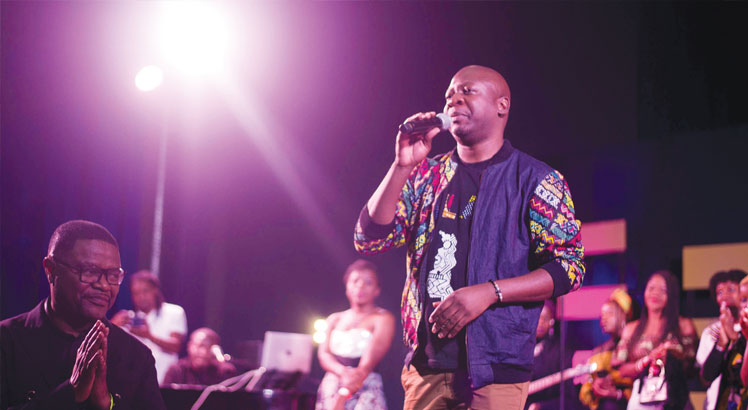Protest drama comes to town
 The years 2010 and 2011 cannot be described as a success without mentioning stage plays as one of the main activities that attracted people’s attention in Malawi.
The years 2010 and 2011 cannot be described as a success without mentioning stage plays as one of the main activities that attracted people’s attention in Malawi.
This is a period during which Malawians have been treated to beautiful artistic works by playwrights and actors who have ensured that whatever they present to the people, is relevant to the times we are living in. This has started to reclaim drama’s lost glory as patronage at stage plays has started to improve for the better.
The multitude of people who watched the premiere of Maloto a Farao, a play authored by one of Malawi’s top dramatists Michael Usi aka Manganya, bears witness to this. The play urges leaders to touch base with their subjects at all times, even those who the leaders consider useless.
Over 1600 patrons watched Maloto a Farao at the Crossroads Hotel in Malawi’s capital, Lilongwe, and almost half that figure missed it due to lack of space. The same happened when the play was staged in Blantyre and in Mzuzu cities.
Usi is currently working on a new play titled Kale which is expected to be released any time from now.
“Kale is a play that portrays the time of Dr. Kamuzu Banda. It is a comment on the good things which the former president did to the country and it has nothing to do with politics,†insists Manganya.
Theatre Association of Malawi (TAM) president Ian Chitsekula has also joined the bandwagon of protest dramatists through his new release Nyasaland at Crossroads.
One of the reasons behind the renewed enthusiasm for the stage act is the protest angle the recent stage plays have taken.
Most of these plays carry strong messages on issues affecting people such as the persistent fuel shortage, poor governance, forex shortage, blackouts, water problems and other challenges.
Another play by Nanzikambe Arts Theatre I will Marry when I want also carries elements of protest art as it exposes some challenges which Malawians in different walks of life are facing. This is another hot composition that attracts hundreds of people whenever it is staged.
But according to both Usi and Chitsekula, their plays are not political.
Usi says, through Kale, he wants to remind the nation the story about the late Dr. Hastings Kamuzu Banda, how he lived and how he governed and developed the country with the help of his four cornerstonesâ€â€Loyalty, Unity, Obedience and Discipline. He says Kale is a story that is based on good things the former president did.
Commenting on his play, Chitsekula said Nyasaland at Crossroads is a calling on all concerned citizens to come and reason together to try and find solutions to challenges tormenting the country.
“It is not about politics, but a way of talking to everyone and trying to persuade people in authority and the citizens to consider sitting together and reasoning as a family on how we can end the challenges that are affecting us.
“It is a comment on the challenges that have rocked the country such as forex, fuel and water shortages and intermittent electricity supply among others,†says Chitsekula who is planning to premiere the play early next month in Lilongwe.
Commenting on why playwrights have resorted to the protest angle in their compositions, Usi in an earlier interview after performing Maloto a Farao at Crossroads Hotel, said compositions must be relevant to what the society is going through. He said as an actor, he is a voice for the voiceless.
Commenting on the emergence of the protest play, Minister of Information and Civic Education Patricia Kaliati said government is not surprised by the development.
“That’s typical of Malawian artists. They do something to please someone so that they can get their bread by the end of the day. As government, we are not surprised that most of them are attacking us because we know they are doing that with a mission.
“But my message to them is that Malawi is not one person’s property. We all belong to it and so even if you spend a lot to tarnish the image of government and country just know that you are part of it,†Kaliati said.
However, the minister said the Censorship Board will continue to be neutral because the truth is known by everyone. She said anyone has the power to judge and government is not worried about this. She also praised the board for being neutral, saying it is up to the public to judge.





